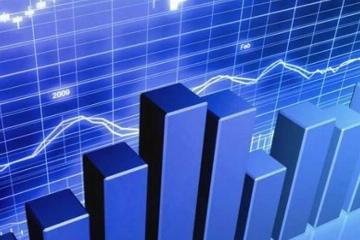US Economy Faces Trust Deficit
Advertisements
Establishing a shared understanding of reality as a foundation for economic policy is no small feat, especially in a nation like the United States, where diverse economic experiences coexistThis diversity often highlights the challenges faced in crafting policies that resonate with all AmericansThe dissonance between economic statistics touted by officials and the realities experienced by everyday citizens poses a significant hurdle.
Despite government reports and media coverage emphasizing buoyant consumer spending and robust employment figures, 36% of Americans perceive the economy as "poor," while an additional 41% consider it "fair." This stark contrast between reported economic prosperity and the public's sentiment raises troubling inquiries about the underlying reasons behind such perceptions
Advertisements
How can one reconcile strong economic indicators with a populace that feels largely disengaged?
One contributing factor to this disconnect lies in the way individuals process asymmetric informationIn simple terms, asymmetric information occurs when one party has more or better information than anotherImagine, for instance, that you are in the market to purchase a productAs a buyer, your options are likely limited to what you can observe directlyConsequently, you form beliefs based on this limited information when making purchasing decisionsPost-purchase, you enter a discovery phase where your beliefs may be challenged based on further observationsIf you uncovers information that contradicts your initial beliefs, it prompts a reassessment of your understanding.
Economists often use models of signaling and screening to explain how agents may make choices that bridge informational gaps, ultimately leading to equilibrium
Advertisements
A crucial aspect is that direct observations following transactions can solidify beliefs and impact equilibriumHowever, in our modern, complex economy, characterized by specialization and interconnectivity, such observations are not always feasibleThe conditions crucial for individual well-being or decision-making often remain hidden from view or beyond personal observation, lacking a comprehensive discovery process that connects beliefs to overarching realities.
When personal verification becomes impractical or unattainable, individuals often turn to various information intermediaries, such as traditional media, governmental bodies, or expertsIn this digital age, social media platforms and online resources play an increasingly pivotal role within our information landscape
Advertisements
For these intermediaries to bridge the gap in information reliability, they must be credible; however, a significant segment of the American population harbors skepticism towards such sources.
According to a 2023 Gallup poll, trust in institutions, ranging from media to government bodies, has eroded to historic lowsA mere 18% of respondents indicated they trust newspapers, 14% trust television news, and as few as 8% trust CongressScientists fared slightly better, with 76% of Americans stating they have "a lot" or "some" confidence that scientists act in the public interest, although the prevalence of skepticism towards scientific authorities is also on the rise.
Why has distrust towards these institutions, which are ostensibly meant to bridge the information divide, reached such alarming levels? A significant part of the answer may lie in the economic performance indicators failing to adequately reflect the lived realities of many Americans, particularly regarding their tangible income levels.
Data on income distribution reveals troubling truths that underscore these sentiments
- US Cuts Costs Without Rate Cuts
- AI Investment: Bridging Virtual and Real Worlds
- Why Investors Are Wary of Bank Stocks
- NVIDIA Faces AI Test After Stock Drop
- Europe's EV Market Stalling?
The 2008 global financial crisis markedly impacted the bottom 50% of households, with their aggregate net worth plummeting to a mere 0.7% of total household wealth by 2010. While the economy experienced some recovery, subsequent challenges, including the pandemic and intensifying inflation, have augmented obstaclesToday, over a quarter of American households allocate more than 95% of their income toward necessities, rendering them ill-equipped to weather even slight economic shocks and nearly unable to build wealthAs of 2024, the total net worth of American households stands at approximately $154 trillion, with the bottom 50% holding a dismal $3.8 trillion, accounting for only 2.5% of the total.
It is not difficult to comprehend why many Americans cultivate distrust towards institutions

While media entities have highlighted the severe economic struggles facing numerous citizens, this coverage has yet to translate into policies or actions that induce meaningful changeThis ongoing sentiment has persisted for two decades, eroding confidence in the entire systemSubsequently, as belief in traditional information sources wanes, individuals gravitate towards alternative, often less reliable sourcesThe internet facilitates this process, though it complicates it further, as it exposes users to a deluge of unverified informationThe resulting ramifications may include severe polarization.
While research into the influence of social media on human behavior is ongoing, platforms such as Facebook and TikTok have undoubtedly evolved into powerful mechanisms for group formation
Leave A Comment